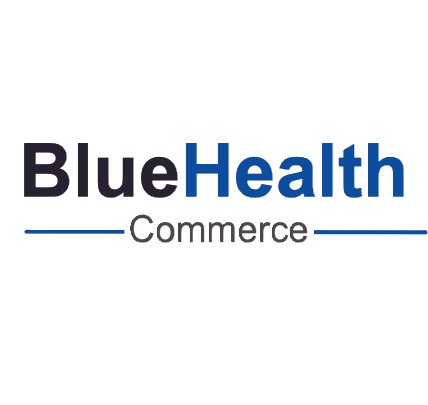Importance of Healthcare Procurement Services
In the realm of healthcare, procurement services play a pivotal role in ensuring seamless operations and optimal resource management. Let’s delve into the crucial aspects that highlight the significance of healthcare procurement services: streamlining procurement processes, ensuring compliance and transparency, and enhancing efficiency in healthcare facilities.
Streamlining Procurement Processes
Efficient procurement processes are essential for the smooth functioning of healthcare facilities. By streamlining these processes, organizations can facilitate timely acquisition of necessary supplies and equipment, leading to enhanced patient care and overall operational effectiveness. Through strategic sourcing and effective inventory management, healthcare procurement services can minimize delays and optimize resource utilization.
Ensuring Compliance and Transparency
Compliance and transparency are non-negotiable elements in healthcare procurement. Adhering to regulatory requirements and industry standards is imperative to maintain the integrity of procurement practices. Transparency in procurement transactions not only instills trust among stakeholders but also helps in identifying and mitigating potential risks. Embracing ethical practices and robust monitoring mechanisms ensures accountability and fosters a culture of integrity within healthcare procurement services.
Enhancing Efficiency in Healthcare Facilities
Efficiency is a cornerstone of effective healthcare delivery, and procurement services play a vital role in enhancing operational efficiency within healthcare facilities. By employing best practices in vendor selection, contract management, and cost optimization, procurement services can contribute to cost containment and budget efficiency. Leveraging technology and data-driven insights further empowers healthcare organizations to make informed decisions and drive continuous improvement in procurement processes.
In the realm of healthcare procurement, optimizing processes, embracing compliance, and driving efficiency are paramount to delivering quality care and sustainable operations. Healthcare procurement services that prioritize these fundamental elements are better positioned to navigate the complexities of the healthcare landscape and drive positive outcomes for both providers and patients. For insights into healthcare procurement solutions and industry best practices, explore our article on healthcare procurement solutions.
Key Considerations for Healthcare Procurement Services
In the realm of healthcare procurement services, several key considerations play a pivotal role in the effective management and operation of healthcare facilities. These considerations encompass strategic sourcing of medical equipment, risk management in procurement, cost control and budgeting in healthcare procurement, and vendor management and relationships.
Strategic Sourcing of Medical Equipment
Strategic sourcing of medical equipment is a critical aspect of healthcare procurement services. This process involves identifying, evaluating, and selecting suppliers that can provide high-quality medical equipment at competitive prices. By strategically sourcing medical equipment, healthcare facilities can ensure that they have access to advanced technologies that meet the specific needs of their patients and staff.
Additionally, strategic sourcing helps in establishing long-term partnerships with reliable suppliers, fostering collaboration and innovation in the procurement process. By leveraging strategic sourcing practices, healthcare facilities can optimize their supply chains, reduce costs, and enhance the overall efficiency of their operations.
Risk Management in Procurement
Risk management plays a vital role in healthcare procurement services, helping to identify, assess, and mitigate potential risks associated with the procurement process. In the context of healthcare, risks can arise from various sources, such as supply chain disruptions, product quality issues, and regulatory compliance challenges.
Effective risk management strategies involve conducting thorough risk assessments, developing contingency plans, and monitoring potential risks proactively. By implementing robust risk management practices, healthcare facilities can safeguard their procurement processes, minimize disruptions, and ensure continuity in the delivery of essential healthcare services.
Cost Control and Budgeting in Healthcare Procurement
Cost control and budgeting are integral components of healthcare procurement services, particularly in maintaining financial sustainability and operational efficiency. Healthcare facilities must carefully manage their procurement expenditures to optimize resource allocation and maximize the value derived from their investments in medical equipment and supplies.
Through effective cost control measures and stringent budgeting practices, healthcare facilities can track expenses, identify cost-saving opportunities, and align their procurement activities with organizational goals and objectives. By prioritizing cost control and budget management, healthcare facilities can enhance their financial performance and ensure the long-term viability of their operations.
Vendor Management and Relationships
Vendor management and relationships are crucial considerations in healthcare procurement services, as they directly impact the quality, reliability, and consistency of the products and services obtained from suppliers. Building strong partnerships with vendors is essential for fostering collaboration, driving innovation, and maintaining transparency in the procurement process.
Effective vendor management practices involve establishing clear communication channels, setting performance metrics, and conducting regular evaluations to ensure that vendors meet the healthcare facility’s standards and expectations. By cultivating positive vendor relationships, healthcare facilities can enhance operational efficiency, streamline procurement processes, and achieve greater value for their investments.
Incorporating these key considerations into healthcare procurement services is essential for optimizing the procurement process, mitigating risks, controlling costs, and fostering collaborative relationships with vendors. By prioritizing strategic sourcing, risk management, cost control, and vendor management, healthcare facilities can elevate their procurement practices and support the delivery of high-quality healthcare services to patients and communities.







